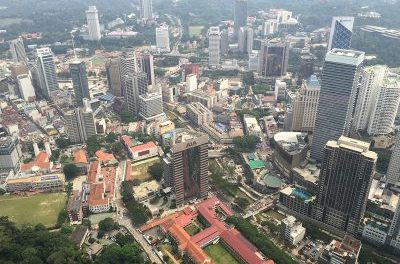PM: Lockdown no longer feasible
More economic sectors are allowed to reopen as the lockdown move is no longer feasible as it is feared that it can have more negative implications, including on the mental health of Malaysians, says Prime Minister Datuk Seri Ismail Sabri Yaakob. He said the reopening of the sectors would not only help speed up economic recovery but also give the people the opportunity to improve their livelihoods. Ismail Sabri also said that 74.7% of Malaysia’s adult population had been fully vaccinated while 91.6% has received at least the first dose of the Covid-19 vaccine. He added that the sectors were reopened with strict compliance to standard operating procedure, including allowing in only fully vaccinated customers and having only fully vaccinated workers on duty. He said the responsibility lies with everyone to maintain discipline and self-control to prevent themselves, their families and their communities from being infected by the virus. “We cannot depend on the vaccine alone. Self-control is very important or all our efforts will be in vain,” he said. (The Star)
Simplified SOPs expected soon
The frustration of having to scour through a complex web of Covid-19 dos and don’ts will be a thing of the past once a more simplified version of standard operating procedures (SOPs) is introduced, says Senior Minister Datuk Seri Hishammuddin Hussein. He said currently, there are 181 National Recovery Plan SOPs and the government is reducing them to just 10. “The National Security Council (NSC) said they can do this in two to three weeks. We will get the Communications and Multimedia Ministry to announce the SOPs to the public using available platforms. The ministry will coordinate the announcements to ensure the information disseminated is consistent and easy for people to understand,” Hishamuddin said. (The Star)
Penang govt moots enactment of urban regeneration act for Malaysia
The Penang government has proposed that the Ministry of Housing and Local Government (KPKT) enact a specific law for urban regeneration in Malaysia. State Housing, Local Government and Town and Country Planning Committee chairman, Jagdeep Singh Deo today said the proposed Urban Regeneration Act was necessary to help drive more planned redevelopment for the country and create a holistic and conductive ecosystem. He said the Act for urban regeneration has already been adopted by developed countries such as Singapore, Australia and Hong Kong. Jagdeep said the proposal was brought up during a discussion with KPKT minister Datuk Seri Reezal Merican. According to him, among the topics discussed were the legislative guidelines and regulation amendments for the Urban Regeneration City projects, a Penang government’s initiative, as well as the concerns and solutions to curb Covid-19 under KPKT’s scope. (Malay Mail)
Govt to continue with policies to increase income, purchasing power of B40 group
The government will continue with policies and strategies to increase income and purchasing power of the people, especially poor households in the bottom 40% income group (B40), Prime Minister Datuk Seri Ismail Sabri Yaakob said. He said the government would also strive to improve their access to basic necessities, including education, health and housing. “The government will also boost entrepreneurship and access to financial assistance as well as improving social protection,” he added. Meanwhile, Ismail Sabri said the poverty percentage and gaps could also be reduced when the economic sectors are opened, which could provide employment or business opportunities to the people. He said the short-term assistance provided previously was temporary and could only last for some time. “The Covid-19 pandemic caused the Malaysian economy to shrink by 5.6% in 2020,” he said. (The Edge)
Thailand approves long-term visas to attract one million wealthy foreigners
Thailand’s Cabinet on Tuesday (Sept 14) approved new visa and tax measures to attract “high-potential” foreigners, in a bid to boost Thailand’s Covid-hit economy. The goal is to attract one million wealthy foreigners within five years, generating about 1 trillion baht of spending, 800 billion baht of investment and 270 billion baht in tax income. The new measures will offer long-term residency visas for four categories of foreigners: rich global citizens, wealthy retirees, professionals working in Thailand, and high-skilled workers. To qualify as “rich global citizens”, foreigners must invest at least US$500,000 in Thai government bonds, Thai property or foreign direct investment, or have earned a minimum $80,000 in the past two years and hold at least $1 million in assets. “Wealthy retirees” must either invest at least $250,000 in Thai government bonds/property and have a minimum annual pension of $40,000, or have a pension of least $80,000. Spouses and dependents will also qualify for long-term visas. Holders will also be exempted from the need to report to immigration authorities every 90 days. (The Star)





